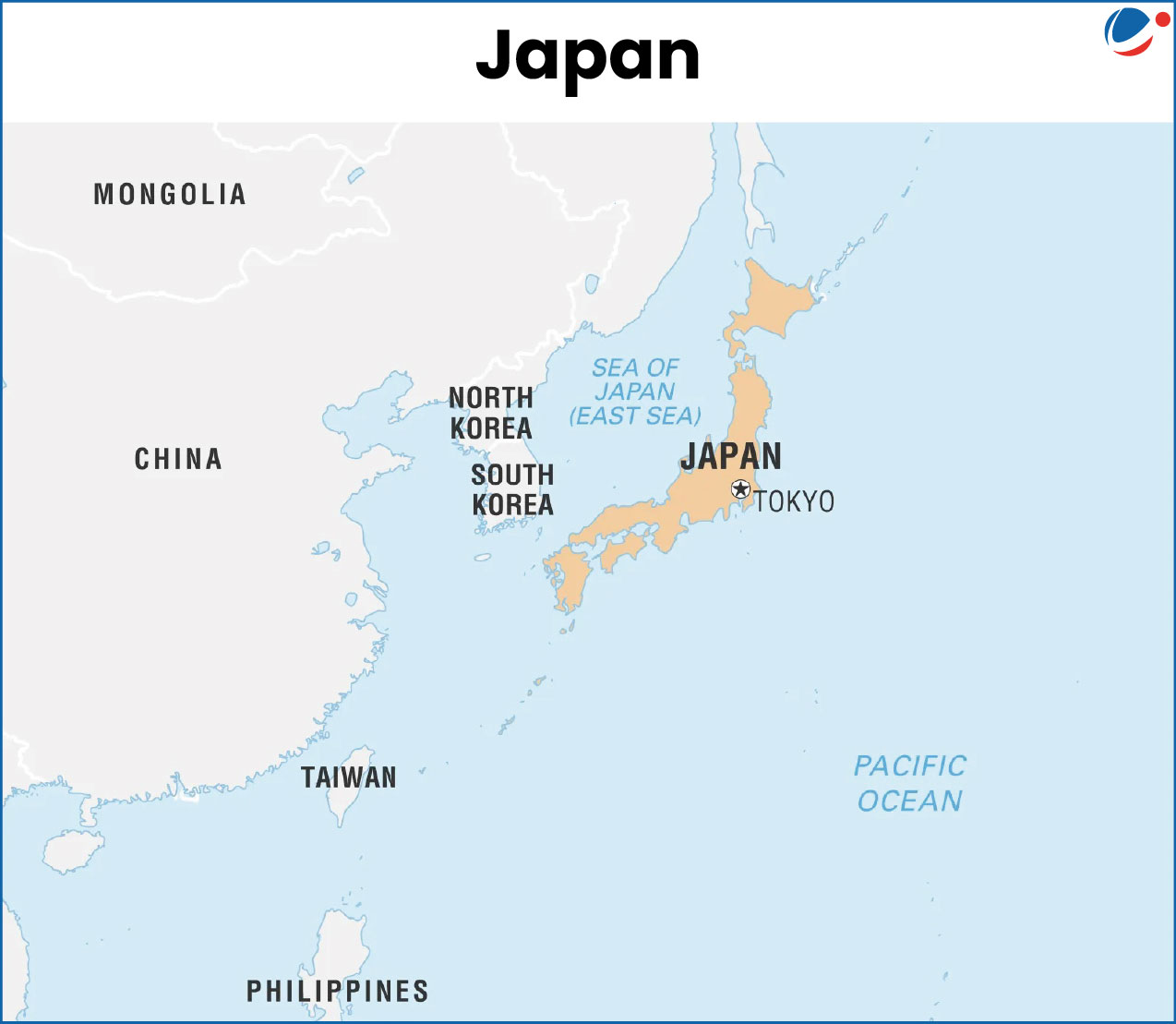Why in the News?
Prime Minister of India visited Japan and signed key agreements further strengthening the India-Japan partnership.
Key Outcomes of the Prime Minister's Visit
- India - Japan Joint Vision for the Next Decade: A 10-year strategic prioritization for economic and functional cooperation in eight lines of effort viz., Economic Partnership, Economic Security, Mobility, Ecological Sustainability, State-Prefecture Engagements, etc.
- State-Prefecture partnerships have been established between Andhra Pradesh and Toyama, Tamil Nadu and Ehime, Uttar Pradesh and Yamanashi, Gujarat and Shizuoka.
- Economic Security Initiative: To promote supply chain resilience in strategic sectors such as semiconductors, clean energy, telecom, as well as new and emerging technologies.

- Space Cooperation: Agreement for cooperation between India and Japan on Joint Lunar Polar Exploration Mission (Chandrayaan 5).
- Other outcomes:
- Joint Declaration on Security Cooperation
- Action Plan for India - Japan Human Resource Exchange
- India - Japan AI initiative
- Sustainable fuel initiative
- Next-Generation Mobility Partnership: (railways, aviation, roads etc., with a focus on Make-in-India).
- India - Japan Small and Medium Enterprises (SMEs) Forum
Pillars of India-Japan Relations
- Current status: Upgraded to Special Strategic and Global Partnership in 2014.
- Economic Cooperation: India-Japan Comprehensive Economic Partnership Agreement (CEPA) came into effect in 2011 and covers trade in goods and services, movement of natural persons, investments, IPR, etc.
- Bilateral Trade totalled US$ 22.85 billion during FY 2023-24 with exports from Japan to India at US$ 17.69 billion.
- India's primary imports include nuclear reactors, copper, electrical machinery, etc., while exports include organic chemicals, vehicles, nuclear reactor, etc.
- India-Japan Industrial Competitiveness Partnership (IJICP) was launched in 2021 to enhance India's industrial competitiveness.
- Bilateral Trade totalled US$ 22.85 billion during FY 2023-24 with exports from Japan to India at US$ 17.69 billion.
- Security Cooperation: Key agreements include 2025 Joint Declaration on Security Cooperation and 2015 pacts on defense equipment transfer and protection of classified information.
- 2+2 Ministerial Dialogues between both countries' defence and foreign affairs ministers.
- Both countries participate in bilateral exercises like JIMEX and Dharma Guardian, and in multilateral exercises like MILAN and MALABAR.
- Development Cooperation: For e.g. Mumbai-Ahmedabad High Speed Rail (MAHSR) flagship project
- India Japan Act East Forum provides a platform for India-Japan collaboration for the development of India's Northeast under Indiaʼs "Act East Policy" and Japanʼs "Vision of a Free and Open Indo-Pacific".
Role of India-Japan in Global and Regional Order
- Rules-based global order: Both countries are committed to a rules-based global order and free and open Indo-Pacific.
- Through QUAD, they coordinate on maritime security, critical technologies, and resilient supply chains, countering unilateralism in the Indo-Pacific.
- Strengthening Multilateralism: They cooperate closely in G4 on UNSC reforms and support each other's candidacy for a permanent seat in a reformed UNSC.
- African Development: India and Japan have established trilateral cooperation with African countries to aid the African Development.
- Asia-Africa Growth Corridor (AAGC) was jointly established (in 2017) by India-Japan to further democratic, sustainable, and inclusive development in Africa.
- Japan-India Cooperation Initiative for Sustainable Economic Development in Africa has also been launched.
- Supply Chain Resilience: Both nations collaborate with Australia in the Supply Chain Resilience Initiative to diversify supply chains and reduce over-reliance on a single country.
Conclusion
Despite concerns like Japan's restrictions on nuclear technology transfers due to India's non-signatory status to the NPT, India–Japan partnership has evolved into a key pillar of the Indo-Pacific architecture. While Japan addresses Chinese assertiveness and unilateralism through the US-led alliance system, India follows a non-aligned, strategic autonomy approach balancing ties with the US, Russia, and the Global South. Anchored in shared democratic values and commitment to a rules-based order, the partnership promotes multilateralism, economic resilience, and inclusive growth, embodying cooperation based on trust and transparency in an evolving multipolar world.






